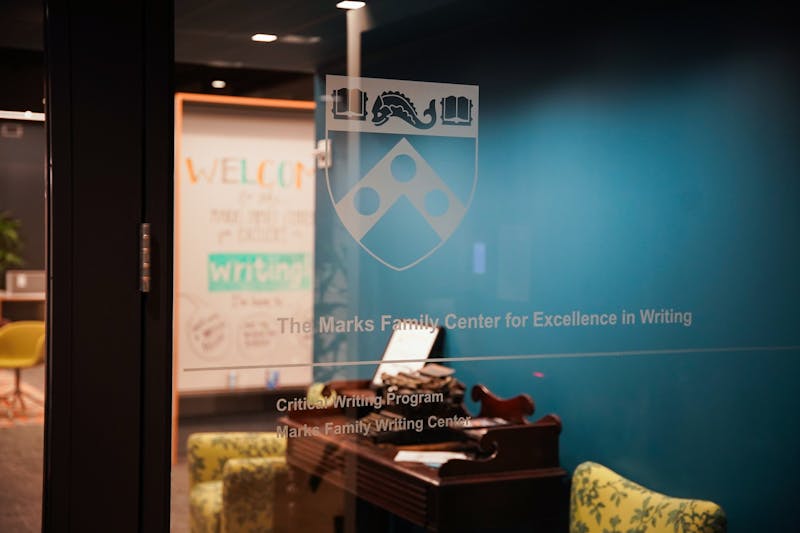
Of the 238 cities vying to become the home of Amazon’s new headquarters, HQ2, Philadelphia is undoubtedly among the favorites.
With the tech giant promising to invest $5 billion into the local economy, there are certainly good reasons to welcome this prospect. Among the project’s many cheerleaders are Mayor Jim Kenney and Gov. Tom Wolf, who both recently signed off on a pitch to Amazon that included a reported $1 billion in tax incentives. However, lost in the frantic scramble to attract Jeff Bezos’ attention is any serious debate as to whether Philadelphia is prepared for the disruption that this move would cause.
With a planned 50,000 employees at its new headquarters, Amazon would quickly displace Penn as the city’s largest private employer. Although Penn and Amazon are two very different kinds of institutions, the problems that their well-educated and well-compensated employees present for the city are qualitatively the same.

It is instructive to consider Penn’s impact on Philadelphia in assessing whether the city should welcome Amazon’s presence. Penn’s neighbors to the west have long complained that the school’s creeping campus expansion displaces longtime residents and erases the character of previously vibrant neighborhoods. Efforts to rebrand West Philadelphia as “University City” were advanced by former Penn Executive Vice President John Fry, who is currently embarking on a similarly ambitious redevelopment project as the president of Drexel University.
In fact, one of the most likely sites for Amazon’s new headquarters is the office space at Schuylkill Yards, which is part of a Drexel-sponsored venture immediately adjacent to its campus. It comes as no surprise then that Fry is among the most vocal advocates of the initiative to bring Amazon to Philadelphia.
While attracting new business to the city — particularly west of the Schuylkill — is certainly a worthwhile goal, these efforts over the past few decades have come largely at the expense of the local community. Displacement of existing residents is not a necessary consequence of economic development, and it is here that the city should seek to extract a few concessions of its own from Amazon.
Foremost among these should be a sustained commitment to low-cost housing — in Seattle, where Amazon’s current headquarters occupies one-fifth of the city’s office space, rent is increasing faster than nearly anywhere else in the country. In return for Philadelphia’s generous incentive package, Mayor Kenney’s administration should ask that Amazon partner with the city to invest in building and subsidizing affordable housing for longtime residents of West Philadelphia. In addition, Amazon should follow Penn’s lead and fund a school in the mold of The Penn Alexander School, which offers excellent K-8 education for the communities west of Penn’s campus.
Some might reasonably protest that making these demands will necessarily compromise Philadelphia's position in the hyper-competitive race to attract Amazon’s new headquarters. However, as the mayor of San Jose pointed out in a recent Wall Street Journal op-ed, tax breaks — on the scale that any city can reasonably offer — and ham-fisted sales pitches are unlikely to sway Amazon. Rather, they serve as a clever way for city officials to take credit for the company's eventual decision.
Furthermore, asking that Amazon participate in the effort to smooth this transition will help the company protect its image at minimal cost. For example, a $500 rent subsidy for 2,000 households in Mantua — the neighborhood of 10,000 residents that would see the greatest disruption if Amazon plants their headquarters at Schuylkill Yards — would come out to only $12 million per year, and serve as a fairly effective form of short-term rent control (Philadelphia does not have explicit rent control laws).
Vocational training for local residents and the construction of a high-quality school would be similarly well-received, at a cost that would still vanish into the company’s immense operating budget — and pale in comparison to the $1 billion dollar tax break the city is offering up front.
Philadelphia is already an attractive place for any company to do business, and luring Amazon shouldn’t require extraordinary concessions from existing residents. If Amazon is serious about making Philadelphia its new home, we can afford to make a few demands of our own to ensure that the resulting benefits are shared by all citizens.
ROHAN ALUR is an Engineering graduate student from Wynnewood, Pa. studying computer science. His email address is ralur@seas.upenn.edu.
The Daily Pennsylvanian is an independent, student-run newspaper. Please consider making a donation to support the coverage that shapes the University. Your generosity ensures a future of strong journalism at Penn.
Donate







